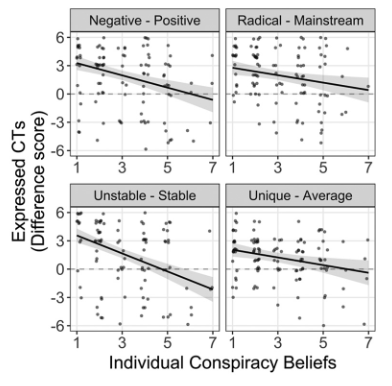KEY POINTS|要点
- People who manipulate nicely don’t threaten. Instead, they employ coercive techniques to persuade us to do their bidding.
礼貌和善的操纵者并不会威胁,而是会采用胁迫技巧来试图说服我们服从他们的要求。
- Manipulative people blur boundaries, encourage guilt, and overlay their version of reality on others.
操纵者会模糊界限,诱发内疚感,将他们对现实的解读版本强加于他人。
- We can resist manipulation by asserting our human rights, maintaining our boundaries, and not answering unreasonable questions.
想要反抗被操纵,我们可以坚定捍卫个人权利,维护自己的界限,不回答不合理的问题。
Manipulation shows itself in different ways, ranging from flattery to bullying. This post focuses on people who manipulate nicely. They do not directly threaten, but they do coerce by questioning one’s character, ignoring boundaries, encouraging guilt, and overlaying their own version of reality on others.
从恭维奉承到欺负霸凌,操纵有多种外在表现形式。本篇文章主要讨论礼貌和善的操纵者们。他们并不会直截了当地威胁,但却会通过质疑对方品格、忽视界限、诱发内疚感、将自己对现实的解读版本强加于对方的方式去胁迫对方。
People who strive for healthy relationships respect boundaries, take time to listen, and engage in caring and supportive behaviors. Manipulative people ignore boundaries, feign concern, and engage in unhealthy strategies to influence others to do their bidding. Such people show devoted self-absorption and a lack of respect for another person’s full humanity.
致力打造健康感情关系的人会尊重彼此界限,花时间去聆听,在行为中关怀和支持对方。
而操纵者则会忽视界限、假装关心,采用不健康的策略去影响对方,从而让对方满足自己要求。这类人只沉浸于自己的世界,缺乏对对方整体人权的尊重。
Most manipulative people do not only manipulate. They often have appealing traits, making their efforts even more effective and difficult to detect and act on. But when they are manipulating, interactions are always from their perspective, and we find ourselves answering unwelcome questions and carrying out unwanted requests.
很多操纵者不仅仅只是操纵,他们通常还具有迷人特征,这就让他们的操纵行为更有效,而且更难以被察觉,因此也就难以应对。但当他们操纵他人时,他们的互动行为总是从他们的视角出发,我们会发现我们在回答让我们感到不适的问题,在服从我们不想服从的请求。
What to Look for in Manipulative Interactions
操纵型互动的特征
Defining Reality. People who manipulate nicely provide their versions of reality as the only version. They project certainty where there is ambiguity or conflict, using phrases that begin with “Surely you must see that,” “Obviously, we are,” or “Certainly this means something.” They speak for others, defining “we” and “us” solely from their perspective, assuming their thoughts are our thoughts, without consulting us.
定义现实:礼貌操纵者将他们对事实的解读版本作为唯一版本。在事实模糊或存在冲突时,他们会用“你肯定也看到了……”“很明显,我们……”“这当然意味着一些什么”之类的开场白来一锤定音。他们擅自代表他人意见,完全只从自己的视角来定义“我们”,未经询问,就想当然地假设他们自己的想法就代表着我们的想法。
Coercing Through Questions. Most of us believe we should answer direct questions. It is our default response. Of course, some questions are helpful.
Mentors use open-ended inquiries to encourage insight, helping us see different perspectives on matters important to us.
Manipulative people use questions to draw us into what concerns them, demanding that we direct our attention away from our own lives and toward theirs.
通过问题胁迫。我们大多数人都觉得我们应该回答被直接提问的问题。这是我们的默认反应。当然,一些问题是很有帮助的。导师们会使用开放式的问题来启发洞见性,帮助我们看到对我们而言很重要的不同视角。而操纵者则通过询问问题的方式将我们的注意力引向他们在意的话题,强求我们将注意力从自己的生活转移到他们的生活上。
Simplifying Our Human Complexity. Skilled manipulators alternate between deification and vilification. When we say or do what they want, they dispense praise. When we cross them, they label us as disappointing and hurtful. Both stances simplify and dehumanize. We are neither gods nor devils.
They may use flattery or gifts or feigned gratefulness to influence us to do things we are uncomfortable doing and would not do on our own.
简化我们作为人的复杂性:技能高超的操纵者会在神化和诋毁之间来回切换。当我们的言语或行为满足了他们的要求时,他们对我们会不吝赞美,而当我们惹到他们,他们则给我们贴上“令人失望”“恶毒”的标签。两种态度都犯了简化、否定人性的错误。我们既不是神,也不是恶魔。他们可能会用奉承、礼物或假装的感恩来试图影响我们,让我们做自己感到很不适,且自己绝不会主动去做的一些事情。
When we refuse to do their bidding, they become insulting about our lack of generosity and self-sacrifice, accusing us of not being there for them. In the process, they do not consider our own rights, needs, and desires.
当我们拒绝服从他们的要求时,他们就会辱骂我们缺乏慷慨之心和自我牺牲精神,指责我们不帮助他们。在这一过程中,他们并没有考虑我们自己的权利、需求和欲求。
Violating Boundaries. People who manipulate blur personal boundaries, often failing to acknowledge that we even have boundaries. We are simply extensions of their needs.
侵犯界限。操纵者会模糊个人界限,通常不会认同我们甚至也有界限。我们只不过是他们自身需求的延伸。
They typically skip steps toward personal intimacy, revealing too much too soon, and then lean on the principle of reciprocity. “I told you, now you tell me.”
They may pretend to respect our privacy but only to identify our boundaries so that they can move around them.
他们通常会跳过正常步骤迅速进展到亲密阶段,过快地透露关于自己的过多的信息,之后就会援引互惠原则:“我告诉你了,现在你也得告诉我”。
他们可能会假装尊重我们的隐私,但目的只是为了了解我们的界限是什么,这样他们就可以绕过我们的这些界限。
Demanding Responses. Often, manipulative people demand immediate responses, even if we’re not prepared to respond. To satisfy these demands, they use the “foot-in-the-door” technique, making small requests that we agree to, and then following with increasingly larger demands. With these larger demands, saying no is more difficult because there is already a yes.
强求我们必须给予回应:通常,操纵者会要求对方立即给出回应,即使我们还没有做好回应的准备。为满足这些要求,他们通常会采用“一脚先进门”策略,即,先提出一些我们同意的要求,之后则会得寸进尺变本加厉。对于这些更大的要求,通常更难拒绝,因为之前已经说过yes了。
Encouraging Guilt. If we criticize, manipulative people will try to induce guilt for this criticism. They will state directly or imply, “After all, we’ve done for each other.” They may even scold us for disagreeing with their interpretations.
诱发内疚感。如果我们提出批评,操纵者通常会试图诱发我们对所提出批评的内疚感。他们会直接表示或暗示“无论如何,我们现在已经结束了。”他们可能还甚至会因为我们不认同他们的解读视角而斥骂我们。
Drawing on Victimhood. Nice manipulators count on our concern for their well-being to exploit our goodwill, thereby gaining concessions that we would not ordinarily make. They thrive on a pain-off, suggesting their problems are worse than ours—or proposing a false equivalence.
利用受害者身份:礼貌的操纵者会依赖于我们对他们的关心而利用我们的善意,从而让我们做出平时不会做出的让步。“痛苦竞赛”会给他们巨大能量,他们会暗示说他们面临的问题要比我们的严重,也或者会虚构出某种跟我们程度相同的痛苦。
They combine praise with their self-assessed difficulties. “I can’t do this without you.” “You’re essential to this project.”
他们将赞美与他们自认为的困境捆绑在一起。“没有你我做不了这个。”“对于这个项目而言你不可或缺。”
Breaking the Manipulation Cycle
打破操纵循环
Asserting Our Fundamental Human Rights. The single most important guideline when encountering psychologically manipulative people is to state our human rights when we see them violated.
坚定捍卫我们的基本人权。面对在心理上操纵他人之人时,最重要的一条方针,就是当我们察觉到我们人权被侵犯时,说出我们的人权。
We have the right to be treated with respect, to set our own priorities, to say “no,” to express our thoughts and feelings, to take care of ourselves emotionally, and to live our lives as we see fit, without intrusion.
我们有权被尊重,有权设定自己的重心,有权说不,有权表达自己的想法和感受,有权呵护我们自身的情绪,有权按照自己的想法、不受侵入地生活。
One goal of manipulation is to exploit our vulnerabilities—and our virtues. It’s possible we may feel inadequate for not satisfying the other person, but we are not the problem. We’re being influenced to feel inadequate, so that we forfeit our human rights.
操纵行为的目标之一,是利用我们的脆弱之处,以及我们的美德。我们很可能会因为没有满足别人需求而感到自己不够好,但我们自身并非问题所在。我们被洗脑而感到自己不够好,因此会放弃自己的人权。
Being Appropriately Contrary. If the manipulating person says, “it doesn’t hurt to ask,” point out that with some questions, it does hurt to ask. It hurts us, and it hurts them.
以适宜的方式反驳。如果操纵者说,“问一问又不会伤害到你。”则指出:对一些问题而言,问了的话的确会伤害到人,而且也会伤害到你。
If they say they won’t take “no” for an answer, we can give them “no” as an answer. Saying no diplomatically and firmly asserts our perspective while maintaining respect for the manipulating person. We can choose to explain our reasons for not complying, but we are not obligated to.
如果对方说他们不接受拒绝,我们依旧可以拒绝。以外交辞令般的方式说不,坚守我们的视角,同时对操纵者保持村中。我们可以选择解释恕不从命的原因,但我们并非有义务必须给出解释。
Maintaining Boundaries. When manipulative people test our limits, they are trying to detect how far we are willing to shift our position. When this happens, we need to stay firm and true to what we know is right for us.
坚守界限。当操纵者测试我们的界限时,他们是在试探我们的底线。当这种情形发生时,我们需要态度坚定地捍卫我们觉得对自己正确的选择。
When being manipulated, we should minimize our responses—getting angry and arguing backfires because we engage when we don’t want to. If possible, we should maintain our distance and avoid interacting unless we absolutely have to. We are not saviors. It is not our job to solve their problems. (That's the job of their therapist.)
当被操纵时,我们应该最小化自己的反应。愤怒和争吵只会适得其反,因为这根本不是我们本来想做的事情。如果可能,我们应该保持距离,避免互动,除非我们不得不互动。我们并非救世主。我们没有义务去解决他们的问题。(那是心理咨询师的工作)。
Taking Time—and Distance. If the person expects an answer right away, we can use time to our advantage. We can create our own deadlines. If necessary, we can take a break. Simply saying, “I’ll think about it,” creates space to formulate a workable response.
给自己时间,和距离。如果对方期待我们立即回复,我们可以为自己争取一些时间。我们可以为自己设立一个合适的截止期限。如果必要,我们也可以按下暂停键。只需要说:“我会考虑一下”,为自己争取想出可行回复的空间。
Setting Consequences. If the manipulating person persists in violating our boundaries and rights and won’t take "no" for an answer, we can set consequences. Not out of spite, but to maintain our integrity. Ideally, consequences will encourage respect.
设定后果:如果操纵者一直侵犯我们的界限和权利,而且不接受我们的反对,那么我们可以设定后果。这并非是出于怨恨,而是为了捍卫我们自身的原则。理想情况下,设定后果,会引发对方的尊重。
Final Words
结语
Although people who manipulate are intrusive and dehumanizing, it is necessary to recognize their humanity, even as they do not acknowledge ours.
尽管操纵者会侵入别人生活、侵犯对方人权,但我们却必需认可他们的人权,即使他们对我们并非如此。
We all want our social needs met, but that means taking into account the realities of the social environment. People who manipulate ignore these realities and define their own, using predictable, persistent strategies to influence us to do their bidding. The manipulation may seem friendly or caring, as if the person genuinely has our concerns in mind. But if it feels wrong, we need to step back and ask the following questions.
我们都想要自己的社交需求得到满足,但这意味着需要考虑到社交环境的现实情形。操纵者会忽略这些现实,定义他们自己的现实版本,使用可预测的、持续的策略来影响我们,试图让我们服从他们的命令。这种操纵可能看起来友好,或者充满关爱,仿佛对方真的是在关心我们。但如果你觉得这不对劲,那么我们就需要后退一步,询问自己以下问题:
Am I being treated with fundamental respect? Is a different reality being projected on my life without my consent? Are this person’s questions and demands reasonable? Do I feel good about myself in this relationship?
对方有没有给我最基本的尊重?
对方是不是在未经我许可的情况下向我的人生投射了一种不同的现实版本?
对方的问题和要求是否合理?
在这段关系中,我感觉自己过的好吗?
We are fully human beings, not marionettes. If we feel like a marionette, we need to cut the strings.
我们都是完完整整的人,不是提线木偶。如果我们觉得自己像是提线木偶,那么我就需要剪掉这些绳子。








